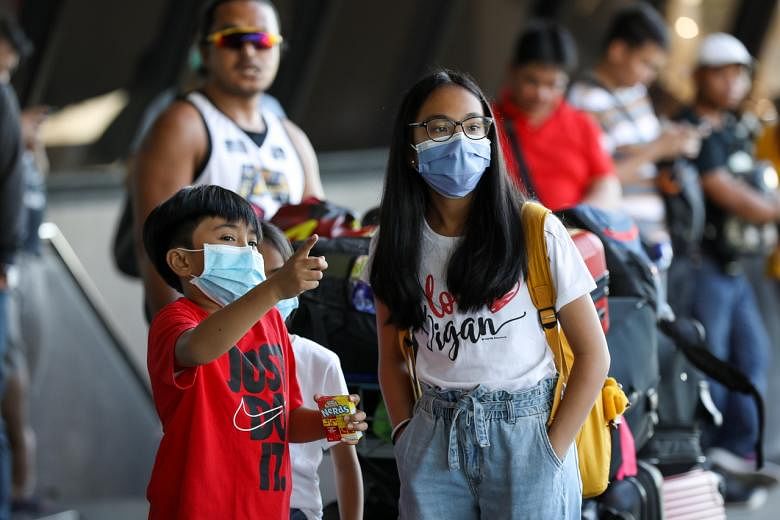Children appear to be asymptomatic or less likely to be sick from Covid-19 than adults, which is why there is no real reason to close schools for now, says Professor Dale Fisher, group director of medicine at the National University Health System and chair of the World Health Organisation's Global Outbreak Alert and Response Network.
He shares more.
Q Why do children seem to be less affected by Covid-19 than adults?
A We know that there are other diseases where children are not affected as much. For instance, chicken pox is a much milder illness in children than in adults.
And a child with Hepatitis A (a viral liver disease) probably does not have symptoms, but they might have antibodies if you test them, whereas adults with Hepatitis A will develop fever and jaundice.
So, we know that children and adults have a different sort of immune system. The children could be - for reasons we do not yet understand - less likely to have symptoms.
If studies done to find out if children have antibodies to Covid-19 show that there are a lot of asymptomatic children, it will prove - but it will not tell us why - that children are getting infected but not showing symptoms.
Q Should we worry about children passing Covid-19 to the elderly?
A That is another question we do not yet know the answer to. However, if they are asymptomatic, they are less likely to do so.
In fact, a lot of the swabs that we have taken from family clusters have shown that while the parents might have had the disease and had symptoms, the children are completely well, even though they tested positive.
We have no evidence that the child in those family clusters was the first person to get it.
It is more the other way around - the parents have infected the child and the child is asymptomatic, but you can find (the virus) in their throat.
If you are asymptomatic, you are much less likely to spread it because you are not coughing, you are not making the droplets.
Is it theoretically possible to spread it if you share a pair of chopsticks, for instance?
We think it is probably theoretically possible, but it is certainly not a major driver of the outbreak.
The money is on people with symptoms spreading the disease before they are diagnosed and isolated.
So, if that period is a week, they are going to spread it a lot. If it is two days, they will not spread it so much.
If it is two days where they stayed home because they were not feeling well, then they will spread the disease to even fewer people, or to no one.
We know that younger people are unlikely to get serious illness, but they can be an important part of transmission and every young person in Singapore has parents and grandparents who are older.
Everyone needs to pull together to do their part, to help save lives.











